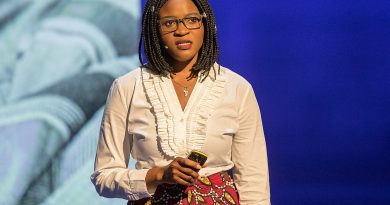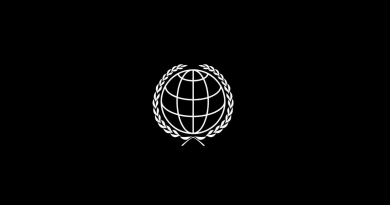School of Diplomacy Lecture: Rajaa Altalli, Women Mediators in Syria
By Harshana Ghoorhoo
Staff Writer
On September 28, Rajaa Altalli presented a lecture on Women Mediators and Civil Society Peacebuilders in Syria to the School of Diplomacy & International Relations at Seton Hall University.
Ms. Altalli is the co-founder and co-director of the Center for Civil Society and Democracy (CCSD), a Syrian Non-Governmental Organization established in 2011. CCSD primarily aims at attaining peace, promoting human rights, and building a stronger civil society in Syria. Altalli is also one of the 12 Syrian women appointed by the UN Office of Special Envoy serving to the Women Advisory Board (WAB).
Altalli recently spoke at The Community of Democracies conference held on September 25 at the 73rd United Nations General Assembly (UNGA) session in New York. The conference aimed at addressing the role of youth in protecting democratic systems and resilience, and how to include the latter in decision-making processes.
Altalli decided she would never get involved in politics, after her father was arrested by the Syrian government when she was 12 years old, fearing her family’s security. She came to the United States on a Fulbright scholarship and focused on Applied Mathematics in Boston for her M.D. Looking to stay as far from politics as she could. However, in 2011 when the Syrian Revolution began, Altalli felt compelled to act and help the Syrian people in their quest for freedom and peace.
In the early stages of her involvement, Altalli primarily documented human rights abuses in the Syrian Revolution. She also focused on the Syrian people’s expectations from the international community, specifically from human rights organizations.
In her lecture, Altalli focused on how civil society could change the dynamics in Syria and how it was indispensable to include women in this fight. The fundamental idea of CCSD was to empower civil society by linking together people on the ground to make decisions and take actions.
Analyzing the history of Syrian politics, she highlighted the Geneva Communiqué, which was agreed upon by the International Support Group. Conferred in 2012, the Communiqué presented a roadmap on the actions needed to solve the conflict and advocated for women and civil society participation in the peace process.
She also expanded on the situation between the Syrian government, who does not currently want to give up power, and the opposition, which demands a political transition to democracy.
Altalli agreed that the opposition had a fair cause and that dictatorship should not be imposed on the Syrian people. In this context, the real challenge was how to build a system of shared power, and whether the opposition would demand complete control over political power or not.
Altalli further described the different legal frameworks used to advocate for women’s participation and civil society engagement in the peace process. In 2015, Security Council Resolution 2254 was adopted to address the conflict. It focused on constitution building, governance, and election.
In her lecture, Altalli addresses the two mechanisms created by the Office of Special Envoy: Women Advisory Board (WAB) and Civil Society Support Room (CSSR). WAB is comprised of 12 Syrian women and has a purely advisory role in the peace-making process. These mechanisms were created in 2016 and operate mainly as advisory committees. They oversee Syrian operations and propose what works best for the civil society fighting in the peace process.
She also presses on the importance of the UNGA, which serves as an important platform to acknowledge the voice of the Syrian people and bring to light the crisis they are facing. Altalli explains that their primary role at UNGA is to lobby the UN to include women in the constitutional committee, ensure that civil society has more decision-making power, and address the fate of detainees in Syria.
Following the lecture, some questions that Ms. Altalli received from the public concerned the opposition regime, the risk of peace builders and activists working within Syria, and the challenges of women activists, and the social norms and restrictions placed on them. Some additional conversation also revolved around the implication of regional and international powers and how it is difficult to address negotiations among the parties involved in the conflict.



